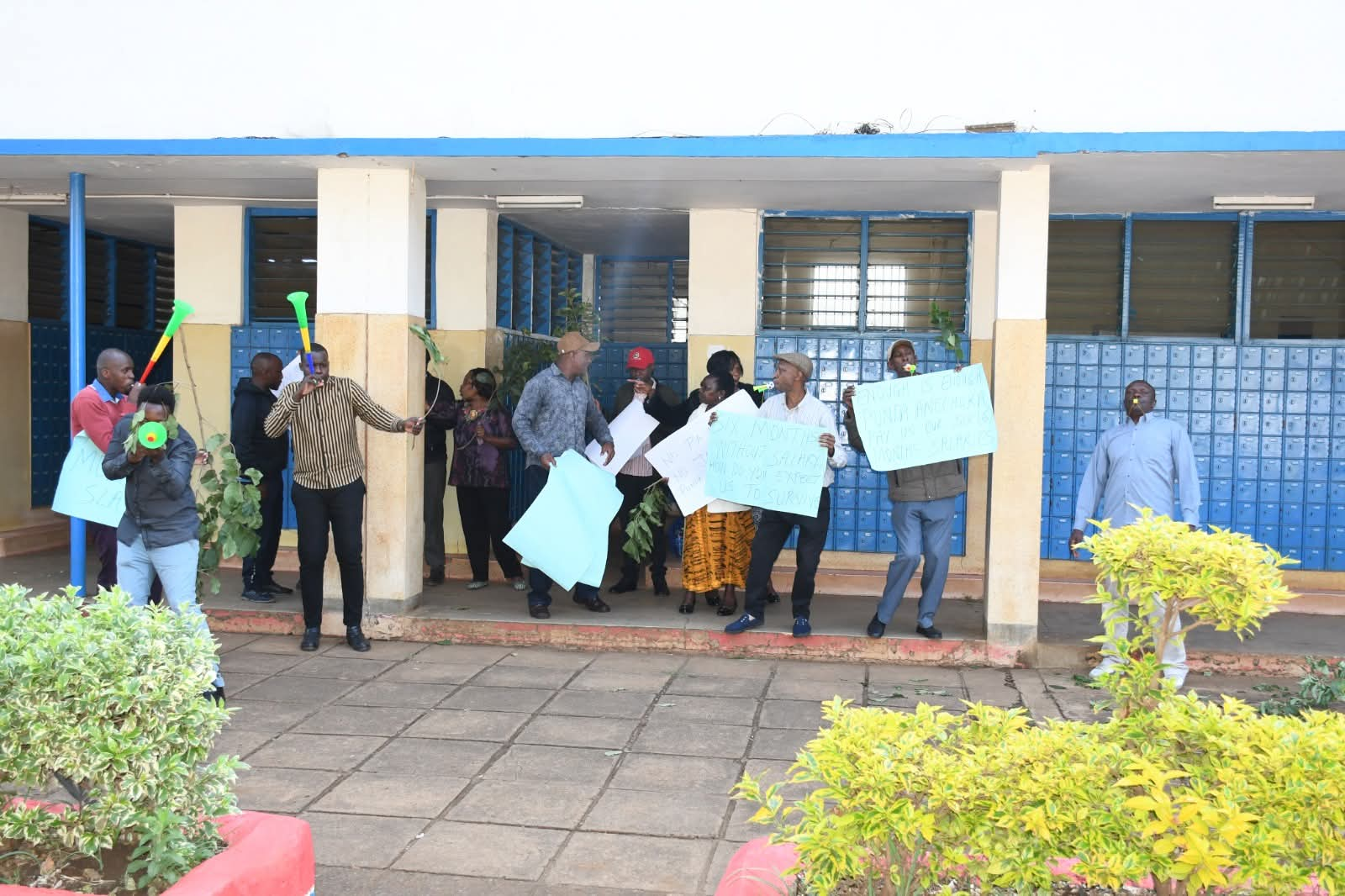When James Kiptalam, the Secretary of the Communication Workers Union (COWU) of Kenya, Eldoret branch, returned home one evening, he found the door locked. Inside, there was no one — his wife and children had packed up and left.
“It broke me,” he said softly. “I couldn’t provide anymore. I couldn’t pay school fees. I couldn’t even put food on the table. When I got home, they were gone.”
Kiptalam’s heartbreak mirrors the despair of hundreds of Posta Kenya employees across the country who have gone for six months without pay, plunging their families into financial and emotional ruin.
Nationwide Strike Paralyzes Postal Services
Posta Kenya workers have downed their tools indefinitely to protest the non-payment of salaries and the failure by their employer to remit statutory deductions.
The move follows the expiry of a strike notice issued by the Communication Workers Union (COWU) more than a month ago. Last week, COWU Secretary General Benson Okwaro gave the government until October 26 to settle the KSh 1.5 billion debt owed to employees — a deadline that came and went without action.
Central Region Branch Secretary Solomon Shikanda confirmed that operations across the Postal Corporation of Kenya have been paralysed as workers demand their dues.
“We have exhausted all avenues, including dialogue, but none seem to be working,” said Shikanda. “Even after performing our duties diligently, we are still not getting paid. Enough is enough — we will not return to work until our salaries are paid in full.”
Mounting Debts, Broken Families, and Mental Strain
The salary delays have forced many Posta workers into desperate circumstances.
“Some of our members are suffering from stress and depression,” said Shikanda. “It’s not easy to survive without a salary under these harsh economic times. Many of us have taken loans, rent is in arrears, and we can barely afford food.”
He added that some employees with children in university have had to ask them to defer their studies due to financial hardship.
In Eldoret, Kiptalam’s empty house stands as a painful reminder of how dire things have become. “It’s not just about money anymore — it’s about dignity,” he said.
Medical Cover and Pension in Crisis
Beyond salaries, the crisis has crippled other essential benefits. Workers’ medical insurance has been suspended, forcing them to pay cash for treatment.
Retired staff have not received their pensions since 2015, despite regular deductions from their salaries.
“If you retire, there is no future,” lamented Ann Ruto, a COWU national executive member. “The company hasn’t remitted our pension contributions for years. It’s devastating.”
Union Points Finger at Government and State Agencies
Shikanda has urged the government to intervene by recovering debts owed to Posta Kenya by other state entities.
“Huduma Centre owes us KSh 1.6 billion in rent arrears dating back to 2013, while the Independent Electoral and Boundaries Commission (IEBC) owes KSh 400 million for transporting election materials during the 2022 General Election,” he revealed.
“If those debts were paid, we could clear our salary arrears and pay staff for another year.”
He added that workers are not demanding a pay rise — only what is rightfully theirs under labour laws.
“We are just fighting for our salaries. These are our basic rights,” he said firmly.
Union Vows to Stand Firm
COWU National Chairperson Emmanuel Kanda has reiterated that the strike will continue until all arrears, pensions, and medical benefits are fully paid.
“We are not begging. We are demanding justice for workers who have served this country for decades,” he said.
As the standoff deepens, Posta services across the country remain paralyzed — and for workers like Kiptalam, the damage has already been done.
He still locks his door every night, but the silence inside lingers. “I keep hoping they’ll come back,” he says. “Maybe when life becomes normal again.”

